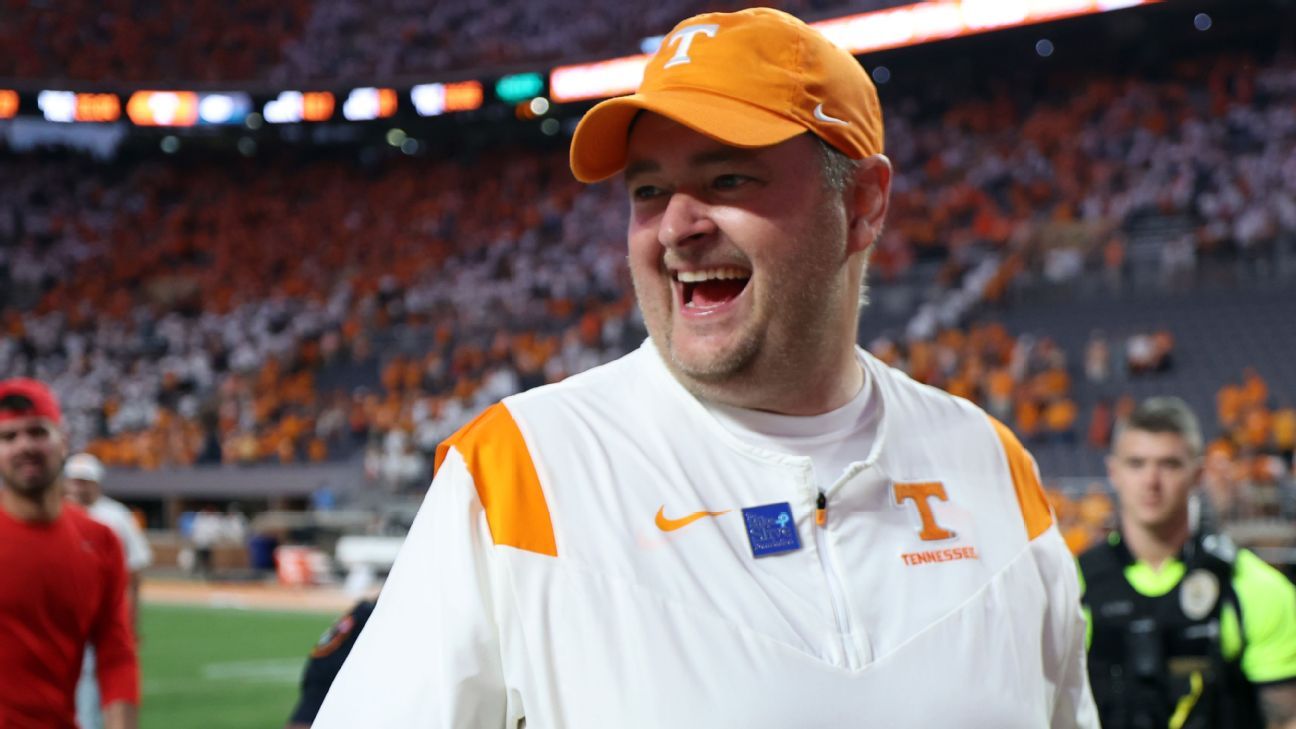Tennessee football coach Josh Heupel took the coaching job in Knoxville in January 2021 with the uncertainty of the severity of NCAA sanctions hanging over the program.
Two and a half years later, he called it a “huge relief” for the punishment to not include a bowl ban, saying he was “really excited” about the outcome as the NCAA Committee on Infractions released Tennessee’s punishment Friday.
“Just super excited,” Heupel told ESPN. “I’m just really excited for the kids.”
Tennessee’s punishment included an $8 million fine for the school, which is believed to be an NCAA record, as well as scholarship losses, a reduction in visits and limits on recruiting contacts. Former coach Jeremy Pruitt, who ran the program while the violations occurred, received a six-year show-cause order and the school is going to have to vacate some of its wins from that time.
But for a program coming off of an 11-2 season and Orange Bowl victory over Clemson, the lack of anything punitive for the current players was viewed by Heupel as a huge victory.
“You don’t know until today what it’s actually going to be,” Heupel said. “It’s hugely important that our players were protected and the future players were protected as well. I’m really excited about the outcome.”
The lack of a bowl ban continues a trend in the infractions process of not punishing current players who weren’t involved when the sanctioned conduct occurred.
“The logical thought is, ‘How are you going to punish innocent people and innocent kids?'” Heupel said. “I’m certainly pleased with the outcome. For people, it’s the right decision.”
A common criticism of the NCAA’s infractions process has been that the protracted pace can lead to decisions that impacted players and staff who often weren’t involved in the infractions. Kay Norton, the president emerita at Northern Colorado and chief hearing officer for the panel, cited Tennessee’s “exemplary cooperation” as a reason why the school was not given a postseason ban.
“Today’s decision preserves opportunities for current students who were not involved in wrongdoing to compete at the highest level and during the postseason,” she said.
For Tennessee, the program can finally move ahead without ambiguity.
“Whether it’s intended or not, the length of the process absolutely hinders you on the recruiting side more than anything else,” Heupel said. “People try and use that against you.”
He added that the program can “100 percent” move forward now.
“You are able to step forward and talk to your team, staff and recruits and say here, ‘This is what it is. This is the impact and how we’re going to be able to move forward,'” Heupel said.
Tennessee has already self-imposed 18 scholarships, a number that covers the past two seasons and the upcoming one. The program has taken similar measures with official visits, home games hosting recruits and evaluation days.
Heupel said the school has “already swallowed those penalties at a higher clip” than it will need to in the future. For example, according to Heupel, the additional 10 scholarships that will bring the overall penalty to 28 can be taken over the next five years. That’s essentially two scholarships per year over that period.
“Our recruits haven’t felt that impact up until that point,” he said. “There’s certainly a cost to it. As a staff you have to be extremely efficient, intentional and purposeful and hit your targets. For the kids being recruited, I don’t think it will change the way they have an opportunity to experience Rocky Top.”
ESPN’s Heather Dinich contributed to this story.
